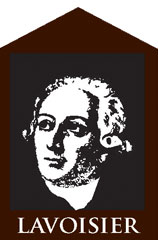Next
The 18th century marked the beginning of experimental science. In this century, the concept of element was revived by those who were doing experiments with gases - the ‘Pneumatic Chemists’.
Robert Boyle defined the element as a substance which cannot be broken down into simpler constituents. This definition holds true even today.
Henry Cavendish in 1766, discovered a highly flammable gas, evolved during the reaction of an acid with a metal plate, whereas in 1774, Joseph Priestley, by heating mercuric oxide, discovered a gas in which combustible substances burned brightly.
The first major blow to philosophers’ concepts of four elements was by French Chemist Lavoisier, who produced water by combining the highly flammable gas (Hydrogen) and the gas that supports burning (Oxygen). This proved that at least water was not an element.
With the development in experimental science, several new elements were discovered in the late 18th and early 19th centuries.

Known as the ‘Father of Modern Chemistry’, he has done pioneering work on not only the Elements but also the Metric system.
Next
Previous: Gold and the Alchemists